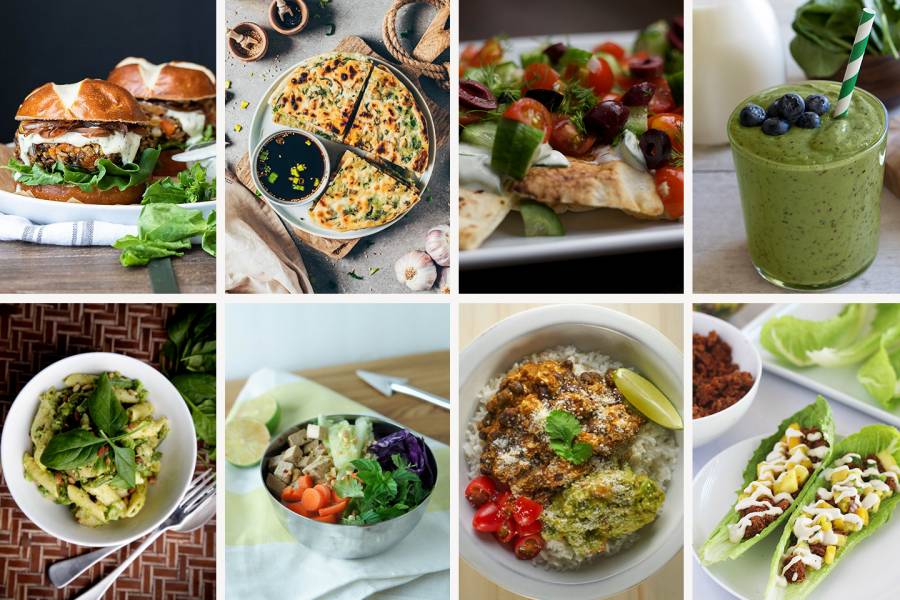The Johns Hopkins community will decide which vegetarian dish reigns supreme in Meatless Madness, a tournament-style bracket pitting 64 meat-free dishes against each other in head-to-head online popularity contests.
The format mirrors that of the NCAA basketball bracket, though there are no fouls—or fowls—in this tournament. The recipes competing in the bracket all come from the Meatless Monday website, gathered from dozens of food bloggers and chefs.
Voting takes place each Monday on the @jhuwellness Instagram page, and the contest is broken into four flavor-themed brackets: sweet, savory, sour, and bitter. After five weeks, the matchups will lead to a final showdown to determine the ultimate dinner winner: the Meatless Madness Chompion.
The dish that prevails will be added to Hopkins Dining's menu every Monday for the rest of the semester.
Thirty-two dishes were eliminated in the first round of voting, which took place last week. The Second Course voting begins today to narrow the 32 remaining dishes down to Savory 16. Round two match-ups include Chickpea Quinoa Burgers vs. Vegan Shepherd's Pie, Lemony Spring Risotto vs. Creamy Vegetable Noodle Soup, Fantastic Falafel vs. Sofritas Bowl, and Mediterranean Nachos vs. Peanut Noodles.
View this post on Instagram
A new round begins each Monday—the Edible Eight, the Fine Dining Four, the Tasty Two—with a winner crowned on Monday, March 9.
The tournament is sponsored by the Meatless Monday initiative, first launched in 2003 by Sid Lerner in association with the Bloomberg School of Public Health's Center for Livable Future. Initially pitched as a health campaign to lessen saturated fat consumption by 15% by abstaining from meat once a week, the initiative has evolved to focus on the ecological and sustainability contributions of a meat-free diet.
According to Becky Ramsing, senior program officer at the Center for a Livable Future, the agricultural industry makes up about a quarter of all human-made greenhouse gases globally, with livestock a main contributing factor.
"The livestock sector makes up about 14.5% of global greenhouse gases, whereas transportation only makes up about 14%" Ramsing said. "If we don't change what we eat, we're not going to make a dent in the climate crisis."
Ramsing said she hopes the addition of a well-loved Meatless Monday dish will help show students how easy it can be to substitute vegetarian and vegan meals into their everyday life.
"Meatless Monday is just a way to help people think differently and be more open to making a change," Ramsing said. "We have surveys showing that people who do it one day a week will actually make other changes in their diet. It's a way to realize that this is doable and delicious."
Posted in Health
Tagged sustainability, dining, wellness









